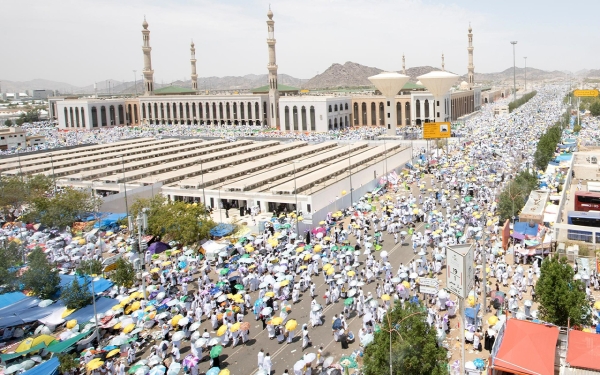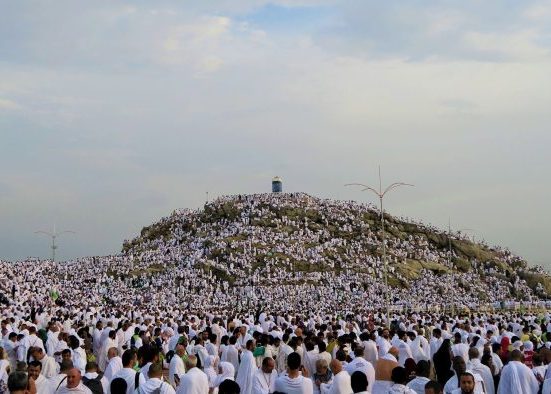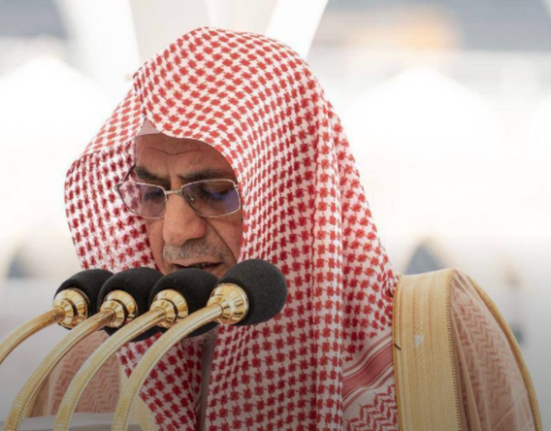As Muslim pilgrims from Nigeria and beyond gather in the sacred plains of Arafah for one of the most spiritually significant moments of Hajj, global attention turns once again to Masjid Al-Namirah, a mosque steeped in Islamic history and revered for its central role on the Day of Arafah. Located in the heart of Arafah, this monumental mosque is the site where the annual Arafah Day sermon is delivered, echoing messages of faith, unity, and submission to Allah across the Muslim world.
The Day of Arafah, which falls on the 9th day of Dhul-Hijjah, holds immense importance in Islam. It was on this sacred day that Prophet Muhammad (peace be upon him) delivered his historic Farewell Sermon during his final pilgrimage, setting forth principles of justice, equality, and devotion. Masjid Al-Namirah, which partially stands on the very grounds where the Prophet is believed to have stood, now serves as a symbolic and spiritual epicenter for this timeless message.
The mosque itself is an architectural marvel, capable of accommodating over 350,000 worshippers at once. It is equipped with modern facilities and high-tech broadcasting systems to ensure that the sermon reaches millions, not only within the boundaries of Arafah but across the globe. Saudi authorities have continually upgraded the infrastructure to cater to the growing number of pilgrims who gather here annually.
For Nigerian pilgrims in attendance this year, standing near or within the vicinity of Masjid Al-Namirah is a deeply emotional and spiritual experience. Many recount the power of the khutbah (sermon), which is delivered in Arabic and simultaneously translated into multiple languages, including Hausa and Yoruba, ensuring full comprehension among diverse audiences. The themes of this year’s sermon, in keeping with tradition, are expected to emphasize piety, patience, the unity of the Muslim Ummah, and the importance of returning to the core values of Islam in a time of global turmoil and moral drift.
In line with the Hajj protocols, pilgrims do not perform their midday prayers until after listening to the sermon. The prayers of Dhuhr and Asr are combined and shortened, as practiced by the Prophet during his final pilgrimage, and observed while facing Qibla in open plains, another unique ritual exclusive to the Day of Arafah.
NAHCON officials, speaking from Saudi Arabia, Nigerian pilgrims were safely settled at Arafah early this morning, having arrived from Mina where they observed the Day of Tarwiyah. The commission expressed satisfaction with the coordination efforts between Saudi agencies and Nigerian Hajj delegations, noting that adequate measures, including mobile clinics, food distribution, and water supply, have been put in place to ensure the wellbeing of all pilgrims.
As the sun stands high over the plains of Arafah and the call to reflection intensifies, the faithful lift their hands in prayer, tears flowing freely as they seek forgiveness, mercy, and acceptance. For many, being near Masjid Al-Namirah on this day is not just a moment of ritual, it is the fulfillment of a lifetime yearning, a connection to prophetic legacy, and a reminder that Arafah is not just a place, but a symbol of submission and spiritual renewal.



